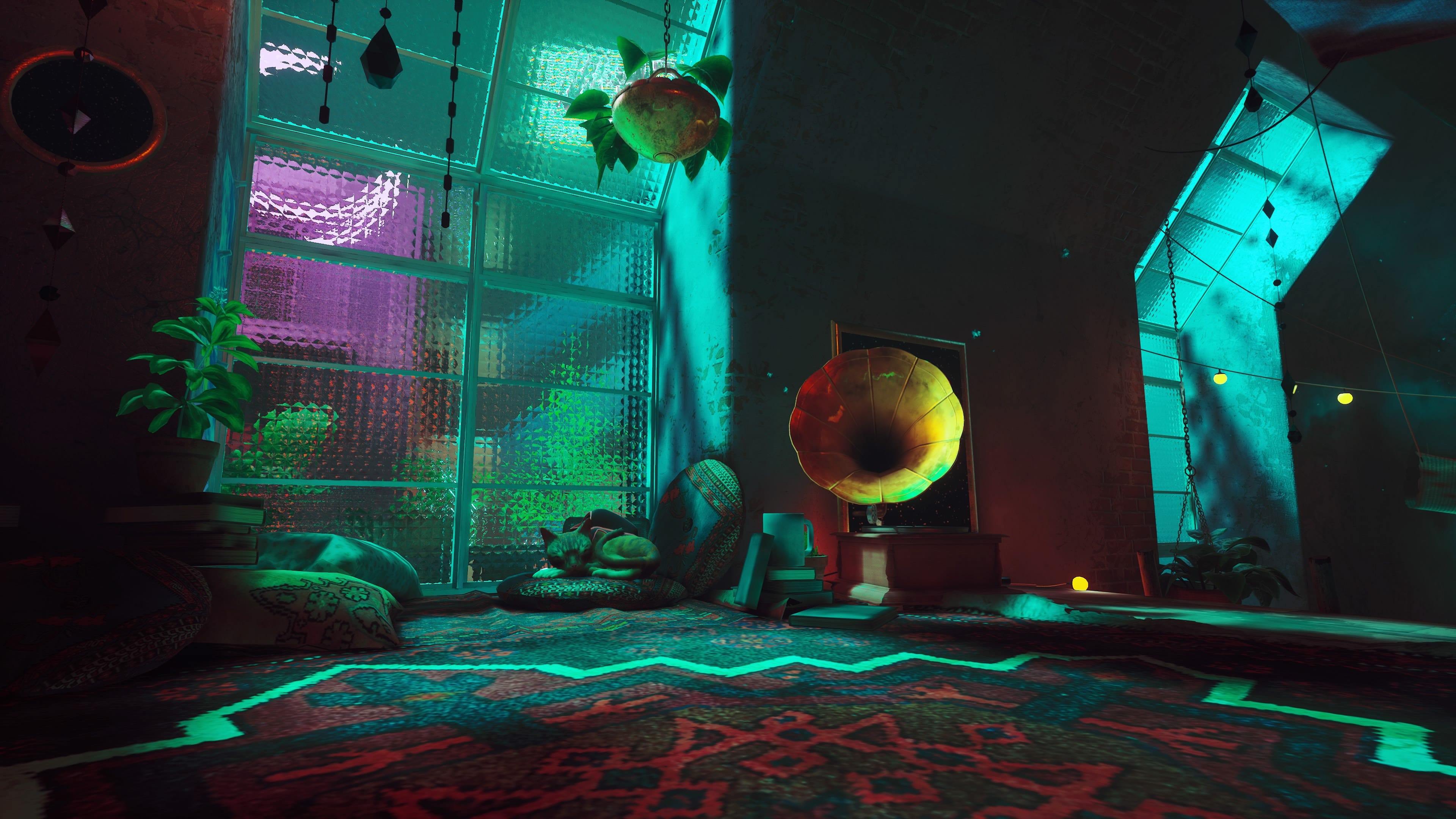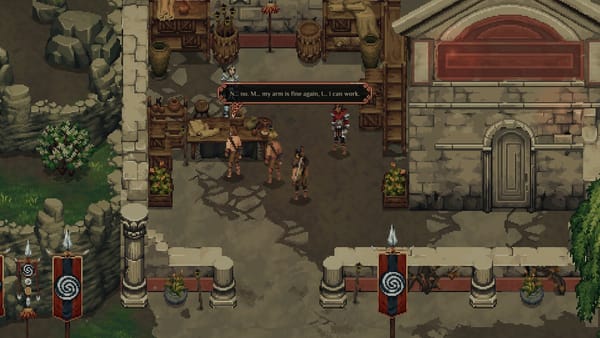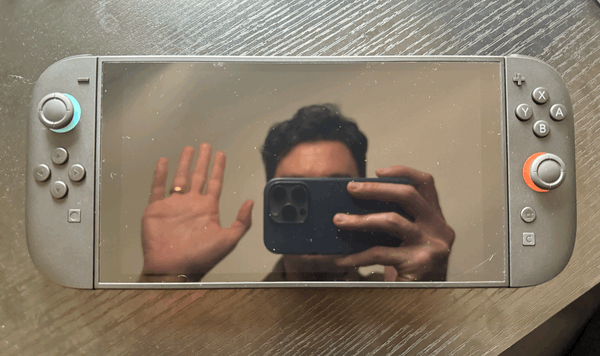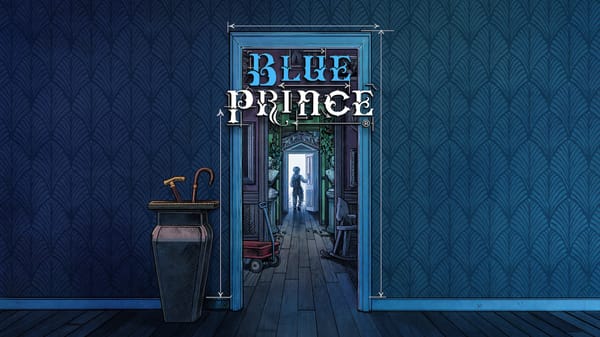Stray and the demands of a unique conceit
Sorry, all: I did not like The Cat Game
Let’s get this out of the way: I’m not a fan of Stray. Before I am besieged by a thrashing horde of cat lovers, all beating me to death with those little sticks with feathers on the end of them, let me also say this: I am a cat person! Though my Instagram attests to my recent transformation into a Basic Dog Dad, I grew up with cats, and only cats, for which I again offer my Instagram as proof.
It gives me no pleasure, then, to say that The Cat Game, Which the Internet Did Like, did not do it for me.

Let’s start with the good, a very good place to start: the PS5 controller makes audible purrs and convincingly vibrates to such a degree that, at one point, I set it in my lap while the cat napped on a pillow, the camera slowly panning out to reveal more of the rain-soaked scene. I felt the cozy feeling you get when a cat falls asleep on you, and you think to yourself, “Well, this is where I am now, forever.” I also like the game’s soundtrack, an electronic fare that ranges from lo-fi chill to pumping beats in the more action-heavy scenes. Also, there’s an in-game guitarist that kind of sounds like K.K. Slider minus the vocals, which, if you know anything about my gaming tastes, will not surprise you to know works for me.
Unfortunately, though, that’s where it ended for my enjoyment. The gameplay mostly boils down to going around and talking to people, showing them items, then talking to more people. Combat is not introduced until a quarter into the game, only to have it removed shortly after its introduction. There are passable stealth segments later on. The game’s puzzles, for anyone who has played a videogame puzzle before, will all be familiar to you.
It feels unsportsmanlike to beat up on a game that is mostly about a cat helping people, which is a breath of fresh air, even just conceptually. The problem for me is that it doesn’t make much use of its premise. There isn’t necessarily anything cat-like about your role in the story. You could’ve easily been a small robot, and nothing notable would change in either gameplay or narrative, with few exceptions. Early on, you get a robot companion that allows you to communicate with the characters in the game, thus eliminating the nonverbal element of communication that could’ve been an interesting mode of narrative delivery. Indeed, in a later scene, you catch a glimpse of the game Stray could have been, had it committed more to its constituent parts. In this scene, you are separated from your communicative robot buddy, leading to a segment where you have to formulate an escape plan with a different robot companion, but this time strictly through body language. It matters, for a moment, that you are a cat and not a robot. It matters, for a bit, that you are an alien being to this robot world. In that moment, you see the promise within Stray, where being a cat could have been more than window dressing on an archetypal story. A novel conceit, built upon and committed to.
In this light, Stray reminds me of a creative writing exercise I used to assign to my intro to fiction students. To get people out of their heads and onto the page, I would ask them to pick an unusual narrator, giving the example of a dog. It isn’t enough to just call attention to the unusualness of the narrator, I would say. Instead, you must think about how that choice (a dog field-of-view on the fictive world) affects the remainder of the choices available to you in the story. Stories are both expanded and limited by choices like this: who is telling the story, where the story is being told, etc. But the point is, once you’ve made a choice, any choice, be it dog-narrator or simply Person Does X, the rest of your job as a writer is to take that choice seriously, and to follow it through toward its inevitable but surprising conclusion. The lesson was (or at least I hope it was) that novelty in fiction is one thing, but commitment to novelty is another. For me, Stray fails because it does not commit to its cat narrator as a serious limiter of action and plot, and, for that, it suffers.
So, have at me, cat whisperers. Like a fresh scratching pole, I invite you to tear me to shreds. I only hope Stray’s popularity inspires a Tokyo Jungle reboot.




